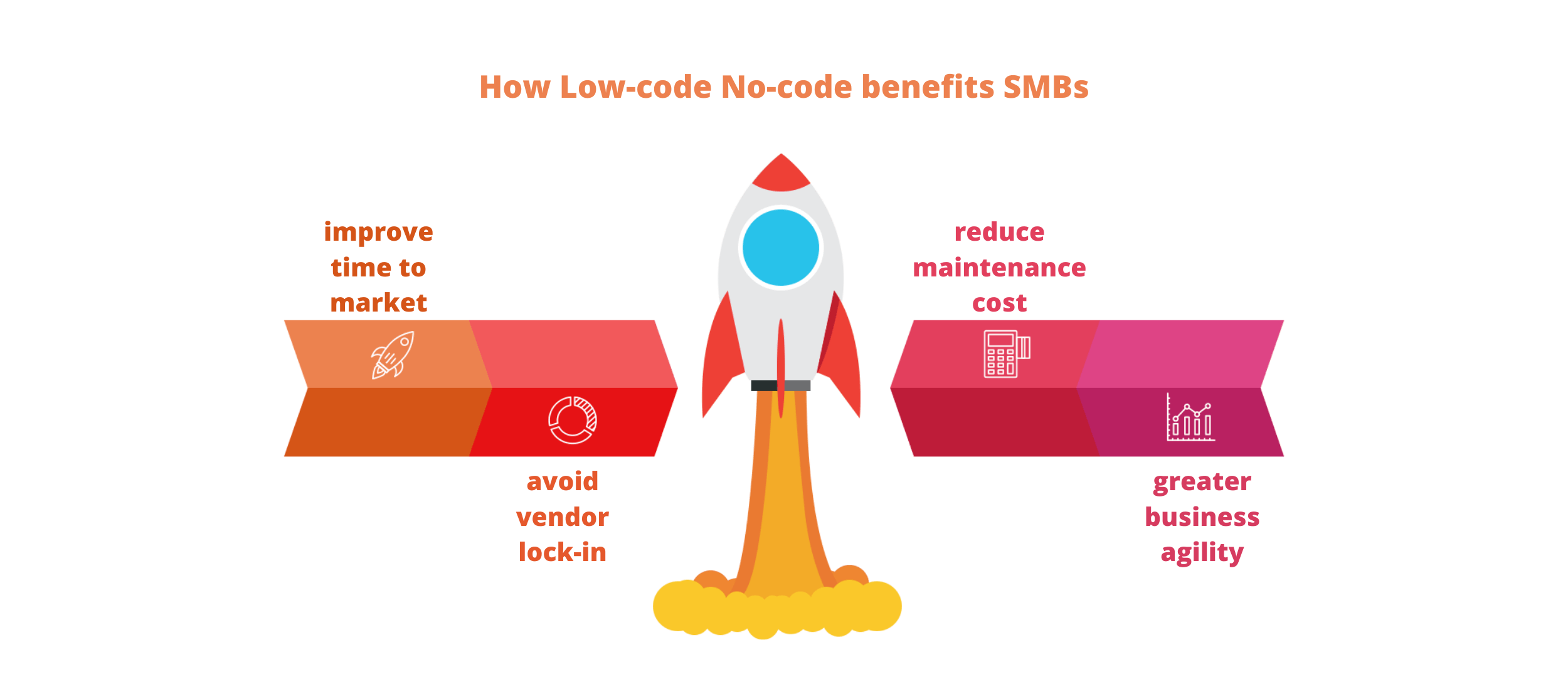Expanding the developer identity to include the 'loconoco' developer
Why we can't underestimate the growing low-code-no-code developer or the tools that serve them.
Table of contents
If you are close to the developer community, chances are that you have come across the terms "low-code", "no-code", "citizen developer" or "pro-code" at some point. As product manager in the developer experience space, these are important personas that I think about all the time.
We now have a nick name for the Low-code-no-code developer: "loconoco", thanks for Kin Lane, Chief Evangelist at Postman and a thought leader in the API space.
I am just going to call low code/no code, "loconoco" from now on.
— Kin Lane (he/him/it) (@kinlane) January 15, 2022
How big is the Low-code and No-code Market?
The No-code and low-code tools are disrupting the software development industry — fast.
The worldwide low-code development technologies market was projected to total $13.8 billion in 2021, an increase of 22.6% from 2020, according to the forecast by Gartner, Inc. The surge in remote development during the COVID-19 pandemic was a main driver for low-code adoption in addition to cost optimizations.
1. Unlock a new market segment
Hiring developers is a luxury that many small and medium businesses (SMBs): don't have. Cost considerations are a big factor in SMBs turning to Low-code no-code platforms. Nearly half of SMBs say they use low-code/no-code (LCNC), according to new research from Accenture.

2. Reduce the cost of development and maintenance
Low-code and no-code products significantly reduce the maintenance costs and this is a significant factor in the decision making for customers.
3. Speed up the time to go-live
Being able to build quickly and start to see results nearly immediately drives the wow factor for customers.
How does this change the identity of a developer?
Developer do code for joy. But for the most part, they are coding with a purpose. And if there is a code-free way to serve the purpose, spending dev effort and time on this is like using a sledgehammer to swat a fly.
The definition of “developer” has expanded from people who can code, to people who want to build. And barrier to entry has reduced because of “loconoco”.
Piecing together experiences with copy paste blocks of code or click through experiences to build something has emerged as great opportunity for product innovation and growth.
Shopify is a great example where it enables anybody with a business idea to build a fully functional website and also integrate APIs like Amazon, Ebay, PayPal, Instagram, Pinterest, etc. without even realizing that in a few clicks, they completed a number of API integrations.
The low-code-no-code products are serving as an entry point for people to start building without being intimidated by the code, and when they do try to do more complicated use cases, they inevitably learn to code. But this way, they become a developer organically.
How do we include the Low-code-No-code developer in the developer community?
The question that is always top of mind with I think about "loconoco" is, do the tools have to become simpler for "muggles" to use, or do the "muggles" have to be open to learning more about magic?
— API Evangelist (@apievangelist) January 17, 2022
We have an opportunity to make the developer community more inclusive and make it significantly larger. Instead of wondering if a loconoco developer is truly a developer, how about we think about them as Future Developers?

References
- Most users have deployed low-code development platforms over the cloud as this mode offers increased scalability, 24/7 data access, and reduced IT expenditure. - PRNewsWire
- In the coming years, small and medium enterprises (SMEs) will become quite important in the low-code development platform market as the proposition of reduced expenses and quicker app delivery provided by this technology makes it ideal for smaller companies with limited finances. - PRNewWire
- Gartner Forecasts Worldwide Low-Code Development Technologies Market to Grow 23% in 2021 - Gartner)
- When Low-Code/No-Code Development Works — and When It Doesn’t - Harvard Business Reivew
- The Rise Of No-Code And Low-Code Solutions: Will Your CTO Become Obsolete? - Forbes
- THE RISE OF NO-CODE August 14, 2020 - erp one
- How No-Code Platforms Can Bring AI to Small and Midsize Businesses - Harward Business Review
- Mid-sized companies are turning to low-code/no-code platforms, study finds Venture Beat
- How low-code/no-code is enabling small and medium-sized businesses to wield the technology advantages of enterprise - Accenture -How to write better technical content Developer Avocado 🥑 newsletter

